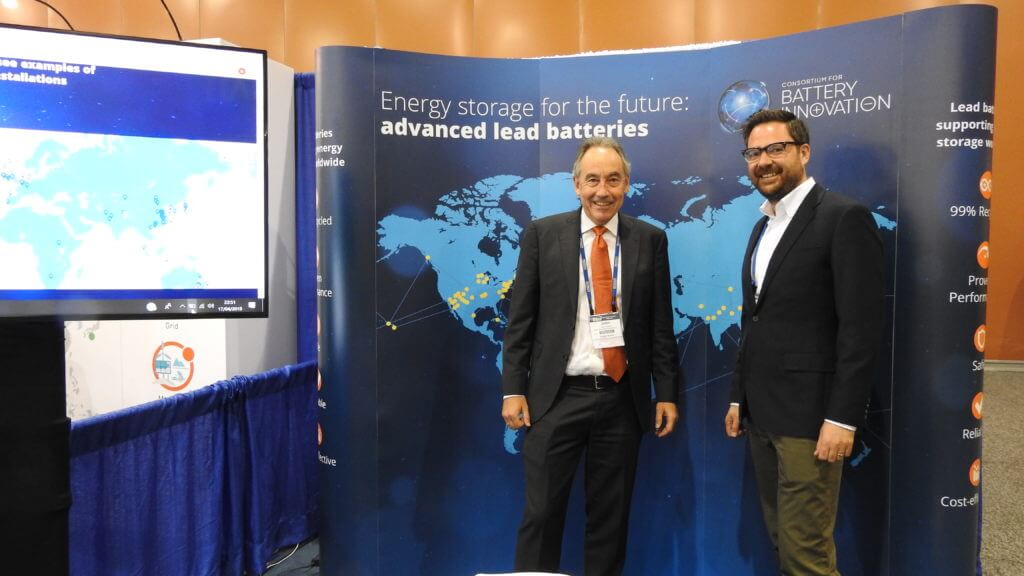
18 April 2019
CBI Director Alistair Davidson met with John Wood, CEO of Ecoult and member of CBI, at the Energy Storage Association’s annual conference. Held in Phoenix, Arizona, they discussed Ecoult’s UltraBattery® technology and its application for energy storage systems.
Alistair Davidson: " John, can you tell us about some of the key advancements in the UltraBattery?"
John Wood: "UltraBattery is doing great as a partial state-of-charge (PSoC) battery. We have applied it to many different applications and we are getting particularly good success in deploying it in off-grid power systems.
A real strength of lead in PSoC is that it has a really long lifetime and great throughput. It also has advantages in terms of soft edges, where if we need to push a boundary for a short period of time, it might accelerate degradation but it doesn’t have a catastrophic impact on the battery.
Lead batteries are a great PSoC system. You have to think about the UltraBattery a little different than a traditional lead battery. To have really great PSoC performance, it has to be complimented with great monitoring and understanding the control methodologies.
The history of the lead battery has been blessed by great technologies and great scientists. It is a complex chemistry but the leading electrochemists in the industry have done outstanding work. We have the benefit of being able to access their work and to capture that by using the technology to combine monitoring that understands the state of the battery and provides information about the state of the battery to preserve its longevity. Typically, lead batteries haven’t usually had to worry about that much. Our way to make a longer living battery is to make a bigger battery, stronger grid and more electrolytes. But on PSoC market, you need to compliment the chemistry with the support through the monitoring control."
Alistair Davidson: "You’ve mentioned off-grid power systems – what other energy storage applications do you think lead batteries are well suited for?"
John Wood: "What we’re finding is, in each market segment, the profile for any two sites is different. It is clear that in the lifetime of a modern ESS, a battery will see a lot of different usage patterns. One stage may be high-speed discharge, and another time may be a slow discharge. The battery needs the flexibility to maintain different capabilities.
Market segmentation is more about competition now. Lithium has been focusing on large MW scale systems and this has left lead battery the mid-range and in remote power systems. Also, because PSoC and lead batteries are flexible, we’re strong in harsh conditions. Lithium tends to like consistent temperatures. Lead has the wonderful ability to handle temperature variation with just a change in the rate of degradation. So, lead batteries are a great technology for variable conditions and remote conditions, wherever you need a flexible, strong energy storage solution."
East Penn/Ecoult has numerous energy storage applications of their UltraBattery technology across the world. Find out more about their global projects utilizing lead batteries by visiting CBI’s newly launched Interactive Map.
